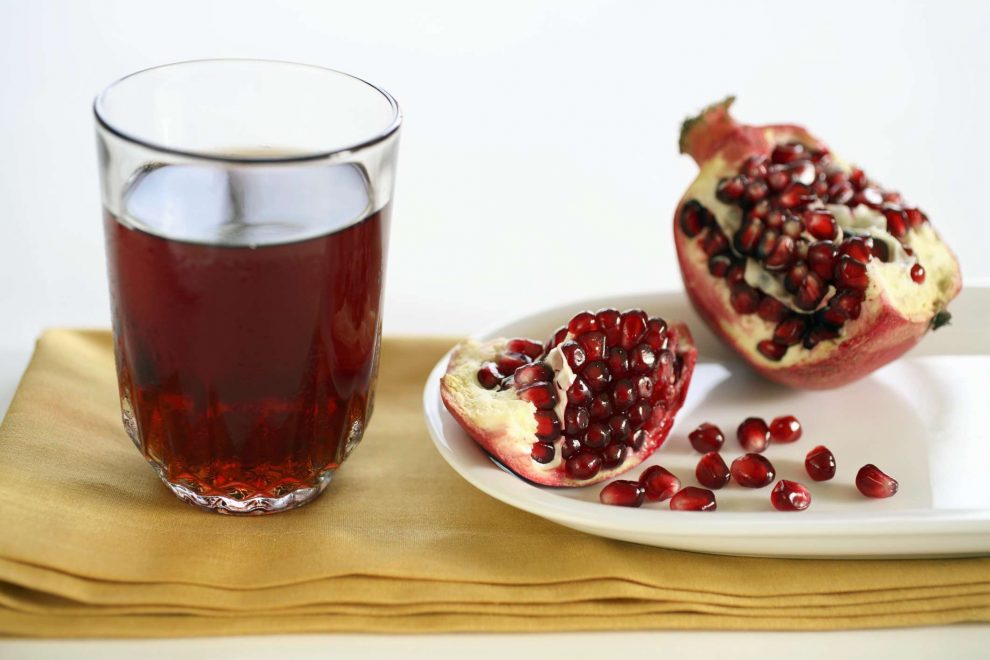How To Make Pomegranate Juice: Making pomegranate juice is not as difficult as you might think. Before you begin, make sure the pomegranates you have bought are fresh and in perfect condition. The healthy peel of a ripe pomegranate is red or dark red and always smooth and shiny. You can also go for organic pomegranates if available locally.
What are the required ingredients?
What You Need:-
➽8 pomegranates
➽A knife
➽A medium-sized bowl
➽Water
➽Blender
➽2 serving glasses
Directions:-
➽Wash the pomegranates under running water.
➽Remove the crown and back.
➽Make slightly deep incisions on the skin from top to bottom, preferably making four or five divisions.
➽Follow each division to gently remove the skin.
➽Once the arils appear, keep the pomegranates aside.
➽Pour water into a medium-sized bowl.
➽Take each pomegranate division and break it under water to avoid any mess. Separate the arils.
➽Rinse the arils, pour them into the blender, and blend.
➽You can either remove the seeds and thick pulp and strain the juice. The latter contains fiber and is more like a smoothie consistency.
➽Serve as fresh.
Making pomegranate juice is simple. You can have the juice every day and reap the many benefits it offers. In the next section, we’ll look at the nutrient profile of pomegranate juice benefits.
But we have to keep something else in mind.
What Is The Nutritional Profile Of Pomegranate Juice?
Fresh pomegranate juice is a nutritious superfood that has no cholesterol and a wealth of vitamins, minerals, dietary fiber, and fatty acids. Unexpectedly, it has few calories.
The USDA lists the following nutrients as being included per 100 grams of fresh pomegranate juice:
➽Energy: 54 kcal
➽Protein: 0.15 g
➽Carbohydrate: 13.13 g
➽Dietary fiber: 0.1 g
➽Sugar: 12.65 g
Vitamin A, thiamin, niacin, folate, riboflavin, potassium, magnesium, zinc, and calcium are among the nutrients found in abundance in pomegranate juice. Ascorbic acid, citric acid, malic acid, fumaric acid, and a number of amino acids like methionine, proline, and valine are among the other organic acids it contains.
Frequently Asked Questions
Q. What time of day is ideal for drinking pomegranate juice?
A. Pomegranate juice should be consumed in the morning after a glass of water to help your body absorb nutrients.
Q. Can we consume pomegranate juice without eating first?
A. Pomegranate juice can be consumed on an empty stomach, but you should first sip at least one glass of water.
Q. How much pomegranate juice ought one to consume each day?
A. You can have a regular serving of 1 cup of pomegranate juice each day because it contains potassium (there is limited research on this). 48 teaspoons, 16 tablespoons, or around 8 fluid ounces make up one cup.




Add Comment